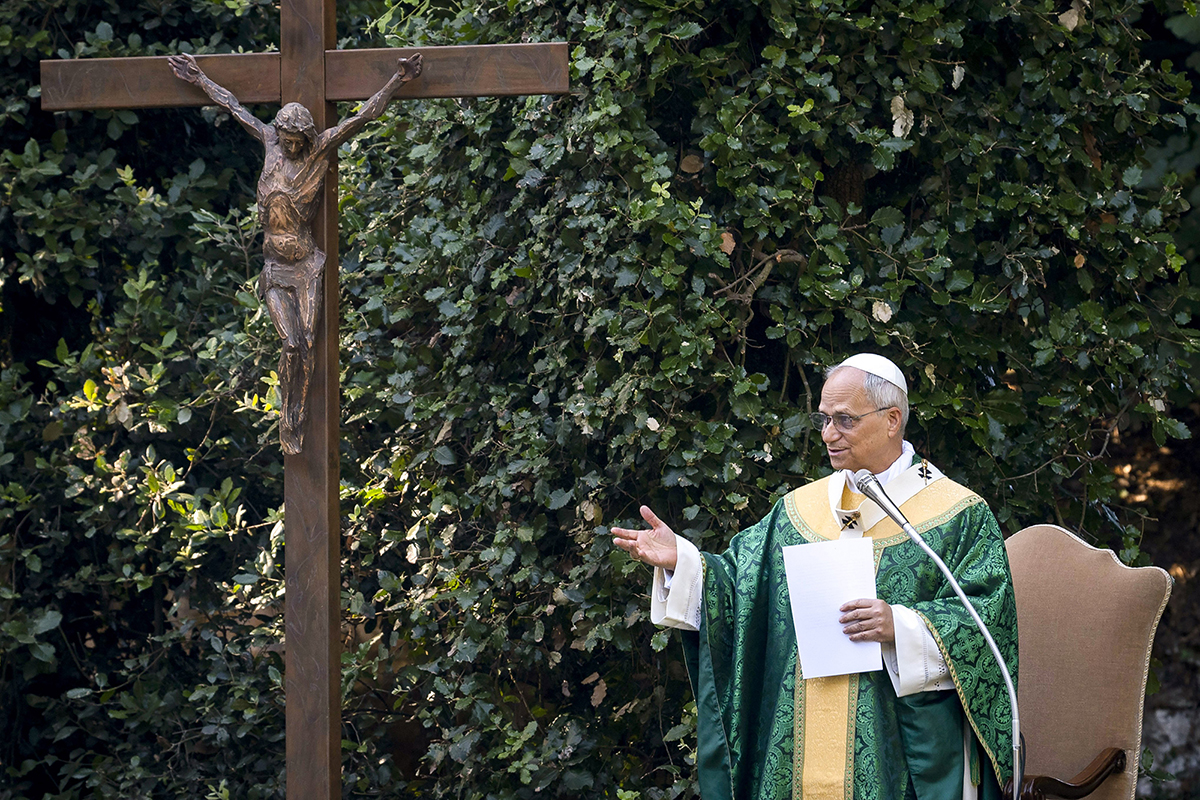SERVE THE LORD WITH GLADNESS | Problems can become opportunities for greater blessing
Looking at things in light of the resurrection can help us change our actions

Dear brothers and sisters in Christ,
Two themes stand out in the readings for this second week of the Easter season.
First is how every problem that the early Church encountered became an occasion for growth and an opportunity to advance the mission.
Peter and John were persecuted by the leaders in Jerusalem; persecution simply led them to speak out with greater boldness. They were thrown into jail; then they were freed by an angel and sent back to preach to the people. Placed on trial, they were asked why they were teaching in the name of Jesus; this became an opportunity for them to tell the Good News. They were flogged; it led them to rejoice and teach more boldly and with greater effectiveness. There started to be a division between the Hebrew and Greek members of the Church; it led to the ordination of the first deacons — bringing about not only a growth in numbers but also in the structure of the Church.
In every case, there was a real problem. But in every case, the problem, when approached the right way, became an opportunity for the Church to receive a greater and deeper blessing. I hope we can take that lesson to heart as we face challenges in parish life in the coming months. I hope we can take it to heart as we face challenges in our personal lives, as well!
Second is the question: “Would you like to go back and revisit your response to that?”
This week, we hear about Nicodemus’ first visit to Jesus. Nicodemus comes to Jesus at night — in the dark, both physically and spiritually. Jesus talks to him about being born again of water and the Spirit, and how the wind (the Spirit) blows where it wills. Nicodemus doesn’t follow what Jesus is saying, and this first encounter ends without resolution.
It’s no accident that we read this episode right after spending a week celebrating the resurrection. The Church is asking us to consider this encounter and ask a question: “Nicodemus, knowing what you know now about the resurrection, would that change how you responded?”
We also read the episode of the feeding of the 5,000 this week — and for the same purpose. Jesus asks “Where can we get enough food for them to eat?” Philip responds: “Two hundred days’ wages worth of food would not be enough for each of them to have a little.” Andrew says: “There is a boy here who has five barley loaves and two fish, but what good are these for so many?”
Again, the Church is using this episode to raise a question: “Philip and Andrew, knowing what you know now, in light of the resurrection, would that change how you would handle this kind of situation?”
The real point of the question, however, is not to point fingers at someone else. The real point is to ask ourselves: Knowing what we know about the resurrection of Jesus, is there anything in the last day, week, month or year that we’d like to go back and revisit? The next time we encounter a similar situation, what would it mean to handle it differently, with greater faith?
I hope and pray that we will see every problem as an opportunity to give deeper witness to our faith and that we’ll approach every interaction with the question: In light of the resurrection of Jesus, how would I like to handle this?





